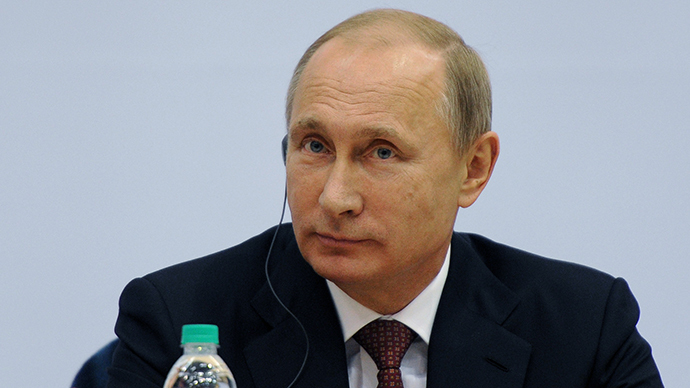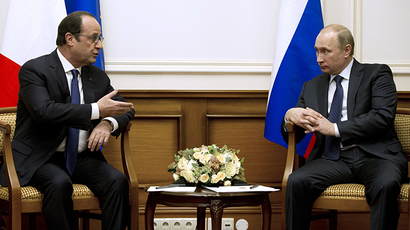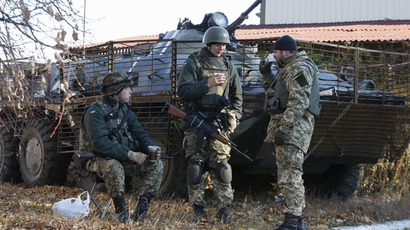Putin, Poroshenko, Merkel, Hollande affirm urgent need for dialogue, ceasefire in Ukraine

The leaders of Russia, Ukraine, Germany and France agree that a meeting of a contact group is urgently needed to kick-start dialogue between Kiev and the country’s East and achieve a lasting ceasefire, the Kremlin announced after a four-side phone call.
President Vladimir Putin has held a teleconference with the German Chancellor Angela Merkel, and his Ukrainian and French counterparts, Petro Poroshenko and Francois Hollande, the Kremlin said in a statement on Tuesday night.
The Russian President stressed “the importance of a swift meeting of the Contact Group with the aim of implementing the Minsk agreements and facilitating dialogue between Kiev and [Ukraine’s] southeast,” Kremlin press release reads.
The exchange of prisoners and the removal of heavy weapons from the demarcation line are some of the “priorities now”, the Kremlin noted. The need to provide economic and humanitarian assistance to the affected regions in eastern Ukraine was also stressed.
“The issues of the economic recovery of the affected regions [Donbas] and the provision of humanitarian and social support to the [local] population have [also] been discussed,” the statement added.
Moscow hopes the so-called “Normandy format” talks will continue in an effort by the four sides to deescalate tensions in Ukraine.

Also called the Normandy Four, the platform was established in June when the leaders discussed the Ukrainian crisis on the sidelines of the celebrations of the 70th anniversary of the D-Day in Normandy, France. Previous discussions of the Normandy Four were held in Italy’s Milan in mid-October.
Earlier this month, Angela Merkel expressed harsh criticism of President Putin’s actions over the Ukraine crisis, warning that Moscow was “creating problems” in Moldova and Georgia, and trying to make some Balkan states “politically and economically dependent”.
Merkel’s comments came just as French president François Hollande was meeting with Putin in Moscow in an effort to defuse tensions.
READ MORE: Putin sees hope for new peace deal in E. Ukraine
During the meeting with Hollande, Putin called on Kiev to promptly withdraw its artillery and multiple rocket launchers away from the frontline and stop shelling the cities of the Donbas region, also expressing hope that in a near future a final decision on the ceasefire will be made.
Russia expects Kiev to exclude any possibility of a blockade of the eastern self-proclaimed Donetsk and Lugansk republics. “Otherwise it is difficult to imagine the territorial integrity of Ukraine. Russia, as you know, supports the territorial integrity of Ukraine,” Putin added at the time.
READ MORE: UN rights watchdog accuses Kiev forces of torture, inhumane treatment of civilians
Meanwhile the death toll from conflict in Ukraine reached 4,364, with 10,064 injured by November 30, the United Nations High Commissioner for Human Rights (OHCHR) said in its eighth report published this week. It also accused both government and anti-Kiev forces in repeated human rights violations.
READ MORE: Frontline handshake: Kiev army, militia meet amid Donetsk airport ruins
The report urged an end to military hostilities and shelling, calling on the Ukrainian government to prevent excessive use of military force to avoid civilian deaths.














